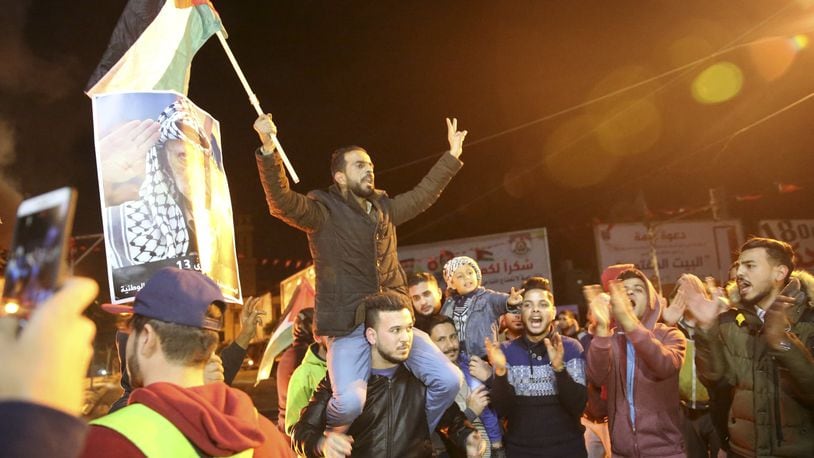Trump’s announcement broke with decades of U.S. and international policy by recognizing Jerusalem as Israel’s capital.
RELATED: Why is Trump recognizing Jerusalem as the capital of Israel?
Despite urgent appeals from Arab and European leaders and the risk of anti-American protests and violence, Trump declared that he was ending an approach that for decades has failed to advance the prospects for peace. He also for the first time personally endorsed the concept of a “two-state solution” for Israel and the Palestinians, provided both sides agree to it.
The announcement is provocative, but not new politically, because Congress voted to move the U.S. Embassy from Tel Aviv to Jerusalem in 1995, said Marshall Weiss, editor of The Dayton Jewish Observer.
The "Jerusalem Embassy Act," formally recognized the city as the nation's capital and called for the U.S. Embassy to be moved there by 1999. But lawmakers, recognizing the potential for volatility over such a move, created a waiver option.
Presidents Bill Clinton, George W. Bush and Barack Obama all postponed the embassy move every six months for each of the 22 years since the law was enacted.
“Every candidate has said they are going to do it,” Weiss said. “No one has ever acted on it.”
Trump declined to sign the waiver by the deadline earlier this week and is now directing his administration to begin preparations for the embassy move.
In announcing his decision Wednesday, he said this “new approach” in no way signals a departure from the U.S.’s commitment to peace in the region.
“After more than two decades, we are no closer to a lasting peace agreement,” he said. “This is nothing more or less than the recognition of reality.”
RELATED: For Tillerson, a lonely job defending Trump's Jerusalem move Trump maintained that his decision would not compromise the city's geographic and political borders, which will still be determined by Israel and the Palestinians.
Ahead of Trump’s speech, Arab and Muslim leaders spoke about the potential for violence. In Gaza, hundreds of Palestinian protesters burned American and Israeli flags. They also waved Palestinian flags and banners proclaiming Jerusalem as their “eternal capital” — language that Israelis similarly use for their nation.
Jerusalem includes the holiest ground in Judaism. It’s also home to Islam’s third-holiest shrine and major Christian sites. Perceived threats to Muslim claims to the city in the past has triggered protests in the Holy Land and beyond.
Pope Francis in his weekly address said the status quo should be maintained at religious sites, which Trump echoed in his speech.
A University of Maryland Critical Issues Poll conducted in November found that Americans disagreed with the idea of moving the embassy to Jerusalem immediately by a 2-to-1 margin.
“It’s an emotional issue. The Arab world is very angry about this,” Weiss said. “Right now the peace process is all but dead.”
Ghussin said he’s concerned for the safety of people of all faiths who live in Jerusalem.
“It’s unanimous among the Muslim community that this is an unfair community,” he said. Trump’s decision just confirms Palestinian views that, “U.S. policy is biased toward Israel,” he said.
The Jewish Federations of North America released a statement welcoming the decision. "We also welcome the affirmation of a two-state future negotiated between the parties in which Israelis and Palestinians live side by side with secure and recognized borders," the statement by Board Chair Richard Sandler said.
The Anti-Defamation League also put out a statement supporting the recognition of Jerusalem.
Anita Gray, regional director for the ADL in Cleveland, said moving the embassy and future steps toward a two-state solution need to be handled in a thoughtful manner and in consultation with regional leaders so as to reduce tensions.
“There’s never any justification for violence and terrorism,” she said.
The Associated Press contributed to this article.
About the Author
